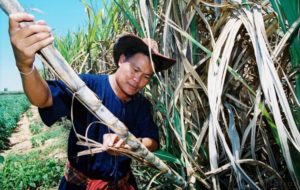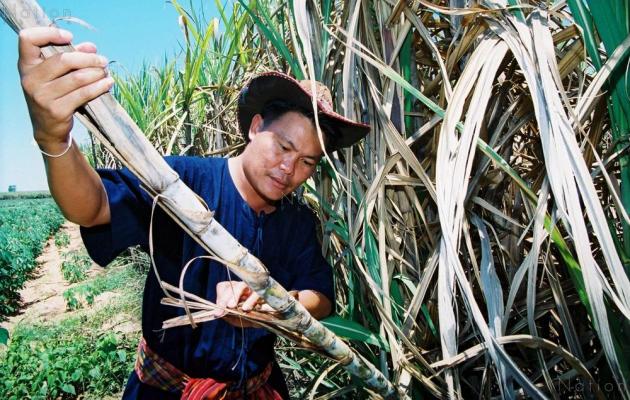So here’s another news that I reported last month on Tecnon OrbiChem’s Biomaterials newsletter, and the trend I’ve been noticing for the past two years or so is really the increased focused on waste-based feedstock and commercialization of chemicals/materials out of those feedstock.
Toray Industries announced last month that it has formed a joint venture company called Cellulosic Biomass Technology Co. Ltd., where it has a 67% stake and its partner, Mitsui Sugar Co. Ltd. has 33% stake, with an investment worth 680 million bahts ($19.38 million). The new JV will be based in Bangkok, Thailand with a business office in Udon Thani Province, Thailand.
The JV will build a demonstration plant which will process around 15 tons of sugarcane bagasse/day and will manufacture about 4.2 tons/day of cellulosic sugar (1,533 mt/y) after going through processes of pre-treatment, enzymatic saccharification and membrane separation. The cellulosic sugar can be used as a raw material for producing various bio-based chemicals such as ethanol, lactic acid, etc. The facility will also manufacture polyphenol (~450 tpd) and oligosaccharide (~250 tpd) <— update 2/9/2017, both numbers still need to be checked but sources say this is probably tpa and not tpd.
The coproducts can be used into livestock feed, thereby increasing the cost economics of the cellulosic sugar process.
Toray will use its water treatment membrane and biotechnologies processes, which will reportedly enable the production of a high quality, low cost cellulosic sugar from inedible biomass while saving 50% energy by using the water treatment membranes in the saccharification and refining processes.
According to the companies, Thailand has been promoting biomass-based businesses as well as research and technology development. Thailand is also one of the world’s largest exporter of sugar in Asia and one of the biggest producers of sugarcane worldwide after Brazil.
While it is not reported in the press release, I’m guessing Mitsui will be the one selling the cellulosic sugar in the market unless there’s going to be an exclusive supply contract for these sugars. Toray said it will actively pursue open innovation between different industries related to its bioconversion technology using membranes, and drive forward the development of supply chain and provisioning of solutions.
Reports indicated the plant is expected to begin operations in August 2018.

There was a news report that Global Green Chemical, a subsidiary of PTT Global Chemical is looking to invest a multi-million baht biorefinery complex in Thailand, with plans expected to be finalized this year. GGC, has reportedly started a joint feasibility study with Kaset Thai International Sugar Pcl, a Thailand-based sugar manufacturer. The plan is to build first an ethanol facility, and proceeding to build a lactic acid and PLA facility to be located in Nakhon Sawan province. The sugarcane mill and ethanol plant is expected to be completed in the next 2-3 years.
The source of funding will reportedly come from GGC’s initial public offering, which it has already filed an application to Thailand’s Office of Security and Exchange Commission. It expects to launch the IPO in the second quarter of this year.
Just to refresh our memory, PTTGC partly owns PLA producer, NatureWorks, which has been looking for a long time to invest in a PLA plant either in Thailand or Malaysia. PTTGC’s subsidiaries also included succinic acid producer, Myriant, and Malaysia-based Emery Oleochemicals. Global Green Chemical’s businesses mostly deals with oleochemicals and biodiesel.




